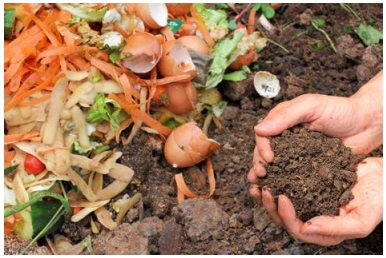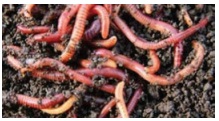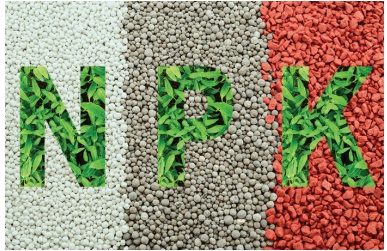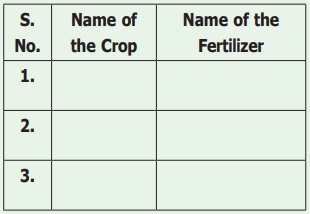Chemistry in Everyday life | Term 3 Unit 3 | 6th Science - Fertilizers | 6th Science : Term 3 Unit 3 : Chemistry in Everyday life
Chapter: 6th Science : Term 3 Unit 3 : Chemistry in Everyday life
Fertilizers
Fertilizers
Apart from water,
sunlight and air, certain nutrients are also needed for the growth of plants.
We know that the plants get their nutrients from the soil.
Nitrogen (N),
Phosphorous (P) and Potassium (K) are
the three important nutrients among the various nutrients needed for the
growth of plants. These three are called as Principal Nutrients.
The table given
below depicts the quantity of elements absorbed by certain common plants.

* What would happen to the nutrient content of the soil, if the field is farmed continuously?
________________________________________
* How could we
resend these nutrients back to the soil?
________________________________________
Fertilizers are organic or inorganic materials that we add
to the soil to provide one or more nutrients to the soil.
Fertilizers given
to plants can be classified into two. They are organic and inorganic
fertilizers.
Organic fertilizers
Fertilizers
containing only plant or animal-based materials or those synthesized by
micro-organisms are called organic fertilizers.
These fertilizers
can be prepared easily. This type of fertilizers are economical. (e.g)
Vermi compost, compost.

Inorganic fertilizers
The fertilizers prepared by using natural
elements by making them undergo chemical changes in the factories are called
inorganic fertilizers. (e.g) Urea, Ammonium sulphate and Super phosphate.
The
table given below lists the nutrients in inorganic fertilizers

If we use 50 kg of
urea, then according to the table, 23 kg of nitrogen (46 percent) will be added
to the soil.
* The percentage of
nitrogen in ammonium sulphate is
* If 50 kg of
potassium nitrate is added to soil, how much potassium would the soil get?

Earthworms take organic
wastes as food
and produce
compost castings. So earthworms are known as Farmers' friends because
of the multitude of services they provide to improve soil health and
consequently plant health.

Activity 4: Make a visit to agriculture field in your area. List out
the various crops and type of fertilizers used there.

Related Topics